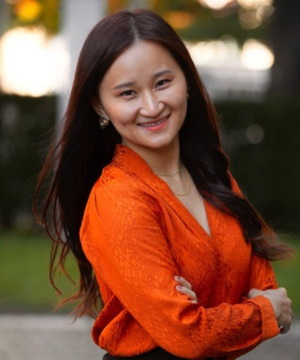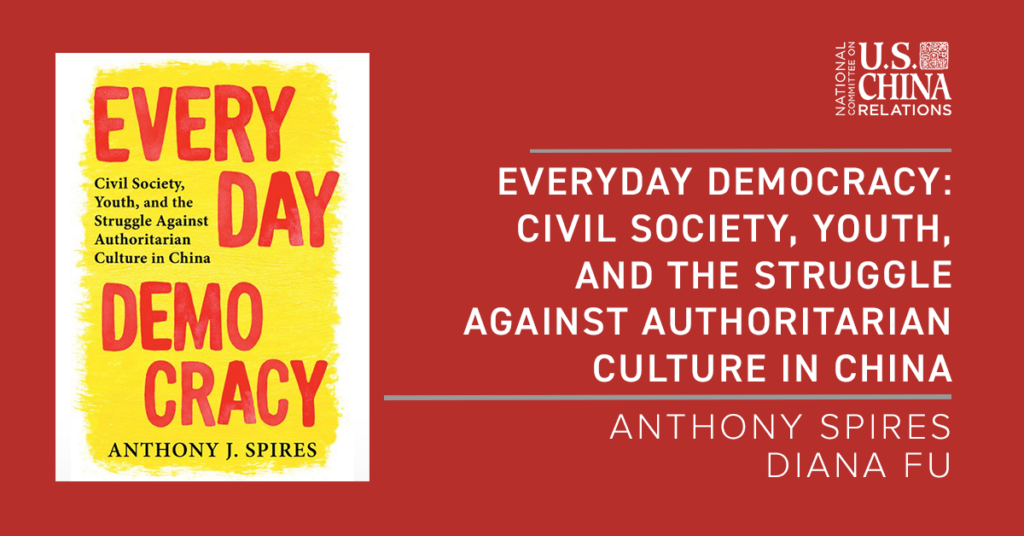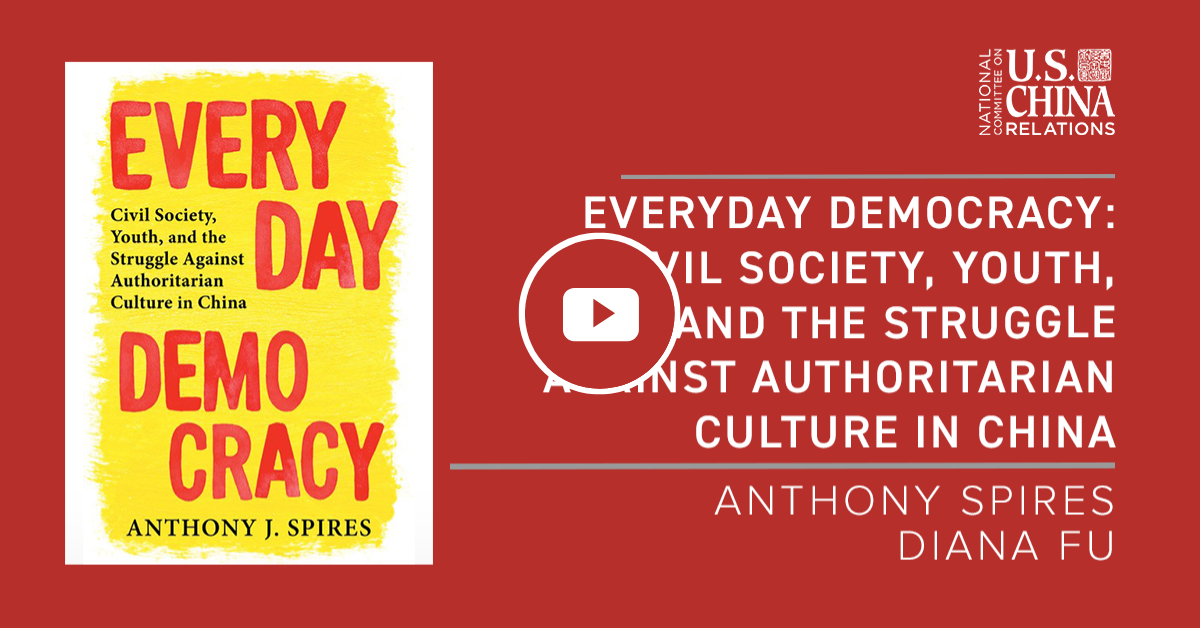Friday, December 6, 2024 | 6:00 PM EST
Some believe that bottom-up voluntary associations are among the building blocks of democracy, preparing people for engaged citizenship. Interest in Chinese civil society is based on the idea that such groups might foster the emergence of democracy. In a society where major institutions bear the imprint of authoritarian rule, can voluntary associations spur social and political change?
In Everyday Democracy, Anthony J. Spires argues that even in an authoritarian state, bottom-up organizations nurture the skills and habits of democracy. In some Chinese volunteer groups, ideals of equality, mutual respect, and dignity have motivated young people to invent new practices and norms that contrast greatly with typical top-down organizational culture. Everyday Democracy pinpoints the seeds of a democratic culture inside an authoritarian regime.
In an interview conducted on December 6, 2024, Anthony Spires, in conversation with Diana Fu, discusses his findings about grassroots organizations in China.
Speaker

Anthony Spires
Anthony J. Spires is an associate professor at The University of Melbourne’s Centre for Contemporary Chinese Studies. He was previously an associate professor in the Department of Sociology and director of the Centre for Social Innovation Studies at The Chinese University of Hong Kong. His research focuses on the development of civil society in China. He has published widely in leading journals, including The China Journal, China Quarterly, Nonprofit and Voluntary Sector Quarterly, and The American Journal of Sociology. He co-edited Authoritarianism and Civil Society in Asia (2022), and Varieties of Civil Society Across Asia (2024). He is the author of Global Civil Society and China (2024) and Everyday Democracy: Civil Society, Youth, and the Struggle against Authoritarian Culture in China (2024). A graduate of Occidental College, Dr. Spires holds a Ph.D. in sociology from Yale University; he is a fellow in the NCUSCR Public Intellectuals Program.
Moderator

Diana Fu
Diana Fu is an associate professor of political science at the University of Toronto and a non-resident senior fellow at Brookings Institution. Her research examines popular contention, repression, civil society, and authoritarian citizenship in contemporary China. She is currently co-authoring a book examining how the Chinese state governs the global diaspora, and is the author of Mobilizing Without the Masses: Control and Contention in China (2018), which won best book awards from the American Political Science Association, the American Sociological Association, and the International Studies Association. Her research and commentary have appeared in BBC, Bloomberg, CBC, CNN, NPR, the Economist, and The New York Times, among others. She was host of the TVO documentary series “China Here and Now” and of POLITICO China Watcher. Dr. Fu received her doctorate in politics from Oxford University, where she studied as a Rhodes Scholar. She is an NCUSCR Public Intellectuals Program fellow.

